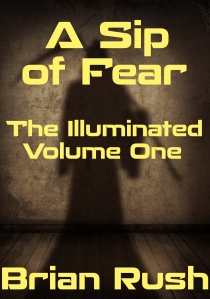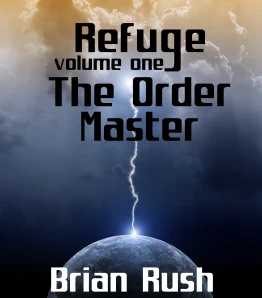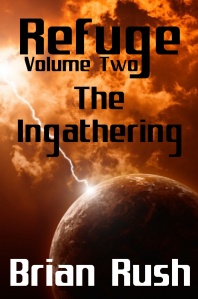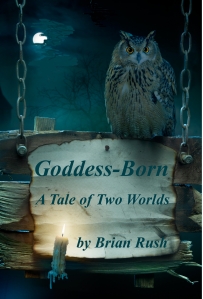 A lot of the posts I’ve been putting up here lately have been about the Abrahamic religions (Judaism, Christianity, Islam, and the Baha’i Faith), and since I’m on that roll I’ll do at least one more. This time on one of the five seminal and creative events in the history of Christianity, the Protestant Reformation. I believe there are implications in this massive transformation, still unfinished, which apply to fantasy world-building on several levels. World-building needs to be done with a view to the way real-world processes work. Fantasy elements can change those, but need to do so in ways that make sense, not willy-nilly. I’ll go into this more in a bit, but first a look at the Reformation as it actually happened.
A lot of the posts I’ve been putting up here lately have been about the Abrahamic religions (Judaism, Christianity, Islam, and the Baha’i Faith), and since I’m on that roll I’ll do at least one more. This time on one of the five seminal and creative events in the history of Christianity, the Protestant Reformation. I believe there are implications in this massive transformation, still unfinished, which apply to fantasy world-building on several levels. World-building needs to be done with a view to the way real-world processes work. Fantasy elements can change those, but need to do so in ways that make sense, not willy-nilly. I’ll go into this more in a bit, but first a look at the Reformation as it actually happened.
The Reformation is one of the better examples of social change flowing from technological progress. It’s also one of the better examples of a movement going far beyond what was initially intended.
The technological advance which sparked the Reformation was printing with movable type. This, and not the religious disputes that were the immediate reason for the collapse of Church unity, brought it on. Religious disputes have been a constant within Christianity at least since the mission of Paul of Tarsus, but from the time when the Imperial Church was formed as the official religion of the Roman Empire, monolithic religious authority was preserved until the 16th century. When heresies arose, and of course they did, they were swiftly crushed. The Imperial Church suffered schism after the fall of the Western Roman Empire, with the Roman Catholic Church hiving off of the original Imperial Church (which has today become the Orthodox Church), but both sides remained broad, monolithic authorities capable of enforcing their respective ecclesiastical law within their own territories. We may say, therefore, that religious dispute and a tendency for heresy to arise is a constant, and so the reason that the Reformation happened in the 16th century and not a long time before that is outside of those disputes. Something acted as a catalyst, and I believe it was the printing press.
Why? Because printing resulted in widespread literacy. European languages are written with an alphabet, which is easy to learn. There was no reason why European peasants couldn’t all learn to read during the Middle Ages, but also no reason why they should. With all reading material being produced by hand-copying, books were rare and expensive. The typical Medieval commoner couldn’t afford books, had nothing to read, and therefore had no incentive to learn how.
With printing, that changed. Books became relatively cheap to produce. Not only books but pamphlets, political tracts, and eventually newspapers became common. Suddenly there was plenty to read and it was affordable and so literacy became desirable, and since it had always been easy to acquire if there had been any reason to do so, people acquired it. Europe changed in a single generation from a mostly illiterate society to a mostly literate one.
And what did this newly literate, Christian society want to read more than anything else? The Scriptures, of course! And so the demand for translations of the Bible into common languages rose, and, despite attempts to ban such translations, the demand was met. Literacy encourages communication and communication encourages questioning, and questioning encourages rebellion, especially when the authorities are not prepared for the changed circumstances and don’t know how to deal with them. Access to Scripture enabled people to think for themselves, within the parameters of Christian belief, instead of being dependent on the clergy.
This was the cultural background of the Reformation, without which it couldn’t have happened. The immediate cause was, of course, Martin Luther’s protest against the sale of indulgences and associated corruption and worldliness in the Church. But Luther did not make his protest intending to split the Church into sects. He intended, rather, to provoke reforms within the Church itself, leaving it intact but purified. But the Church proved uncooperative, and, taking inspiration from Luther’s initiative, rebellious movements spiraled out and out from the center of Catholic doctrine to explore more and more heretical ideas. Even within the Protestant movement itself, moderate reformists contended with radicals. Things fell apart. The center could not hold. The rebellion spilled out of the arena of religion and affected politics as well, provoking peasant uprisings and independence movements, toppling dynasties, burning manors, and even for a time overthrowing the English monarchy (although it was restored barely a decade later).
In the past, before the development of printing, circumstances favored monolithic religious control. This was not for lack of disputes within the Church — far from it! But these disputes never broke the central authority and coherence of the Church, even when the papacy was divided in the 1300s, or when popular dissenting movements arose such as the Albigensians. From the fall of the Western Roman Empire on, Europe has been politically divided, yet in the West it remained religiously unified until the 16th century. Before the invention of printing, the domain of the Catholic Church was a solid unity that couldn’t be shattered even by the most bitter of internal disputes. After printing arrived, it disintegrated into a multiplying diversity of sects whose unity has never been restored and almost certainly never will.
A Thought-Experiment
Now, let’s move outside actual history and consider the implications of these matters for fantasy storytelling. As I’ve said before, fantasy world-building should begin with something plausible and historical and shift it through the introduction of fantasy elements and their logical consequences. Thus, the way I would like to approach this is through a thought-experiment in which two fantasy elements are inserted into the Reformation history.
First element: The miraculous powers described for the Apostles in the Book of Acts were real, and continued to occur from time to time in unpredictable individuals.
If we believe the Acts accounts (which I don’t, but never mind that), the Apostles inherited much of Jesus’ ability to perform miracles, or even a bit more. Let’s say they did. Further, since in Christian thinking this was not their power, but the power of the Holy Spirit (i.e., of God) operating through them, it would not necessarily disappear with the Apostles’ death. Every now and then, someone arises who channels the same kind of miraculous power. This is never a person of importance within the Church, although quite often it’s a minor and obscure member of a monastic order. (St. Francis showed it. When he was condemned for heresy and burned at the stake, the flames refused to harm his body. He similarly survived hanging, beheading, and being shot with crossbow bolts. Eventually the Pope commuted his sentence to beatification. If you can’t beat ’em . . .) Sometimes it’s someone outside holy orders altogether, always poor and of the lower orders in society.
After Luther nails his protest to the church door, Europe produces a bumper crop of miracle-working prophets. Luther himself is not one of them, and views the movements they generate with great suspicion.
Second element: Although they do not have the Apostles’ ability to work miracles, the highest ranks of the clergy do include many accomplished magicians.
The Church condemns magic as at best the usurpation of God’s will, and at worst channeling of the power of Satan. In secret, however, the Pope, the Cardinals, and many bishops and archbishops are practitioners of the Arts. Many of them are quite good at it, and this is part of the secret of the Church’s successful hold on power. They can influence people’s minds. They can curse their enemies with misfortune. (During the Papal Schism, curses flew between Rome and Avignon on a regular basis.) They can manipulate the weather to punish heretical regions or reward loyal ones. They do all this by summoning devils and binding them to service with the Names of God and secret rites. There are whispered tales, though, of dark sorceries worked by some high clergy involving selling their souls and sacrificing children, allowing greater use of diabolical power than can be compelled through white magic. Sometimes the Church will use these powers openly, pronouncing anathema on a person and then cursing him, or praying for a good harvest in time of drought and then ensuring it through magic. More often, the power is kept secret.
Some nobles outside the clergy are practitioners as well, but most of Europe’s magic is wielded by the Church.
Now, how do these two fantasy elements change the playing field and the story of how the Reformation played out? All the real historical elements are left in place. We have newly widespread literacy, spreading rebellious ideas, and the spark of Luther’s protest against corruption in the Church. But we also have magical powers on the part of the upper Church hierarchy (of which Luther, being a mere priest, knows nothing but rumors), and miraculous powers on the part of some of the Reformation rebels.
The general effect of these changes is that the Reformation would be even more tumultuous and violent than it actually was. The Church would react to the sudden eruption of heresy with terrible spells. Miracle-working prophets would become centers of religious movements, sometimes calling for a leveling of the social orders and the overthrowing of monarchies, or for seizing all property of the Church and distributing this wealth among the poor, or similar radical changes.
A lot of stories could be envisioned as arising from this stew, such as:
1) The story of Luther, caught between the Church and the radicals, proving resistant to the Church’s curses from sheer stubbornness, but fearing the whole business has gotten out of control. He’s faced with a movement arising in the countryside to topple all of the German princes and create a socialistic democratic utopia, at the same time as war brews between Protestant and Catholic princes and Church agents seek to assassinate him.
2) The story of Henry VIII, whose break with the Pope is answered by a terrible curse that afflicts him with a wasting disease and causes all of his new wife’s children to be stillborn. In desperation, the king turns to a prophet who has arisen in the English countryside. The prophet cures Henry and Queen Anne with his miraculous power, but extracts a price: the king’s commitment to expand the powers of Parliament, limit those of the nobility, and allow true religious freedom in England. Rebellion soon rises in the land as the nobles fight back against their loss of privilege, while the common people rally to the King’s banner.
3) The story of a gifted young man of Paris, the son of a prosperous merchant, whose life is disastrously impacted by all of the turmoil. His father is hauled before the Inquisition on suspicion of Protestant views. Books seized from the merchant’s hidden library prove the charges true, and he is burned at the stake. His son is doomed to poverty and forced to sell his family home, but in cleaning out the place he finds one book that the Inquisitors didn’t: a tome of secret magical art. He carries the book with him when he leaves and begins a quest for revenge.
And so it goes. Fantasy elements build on a base of the familiar and historical.










